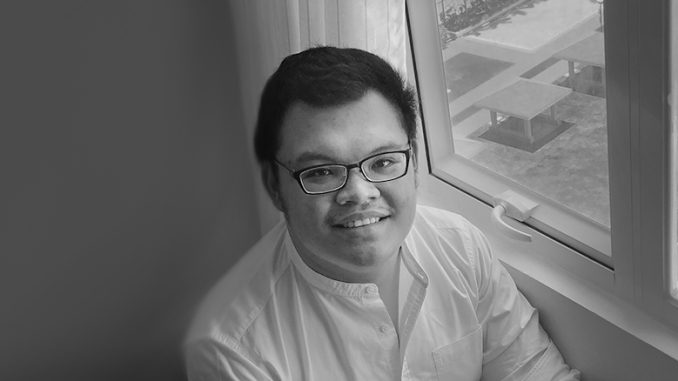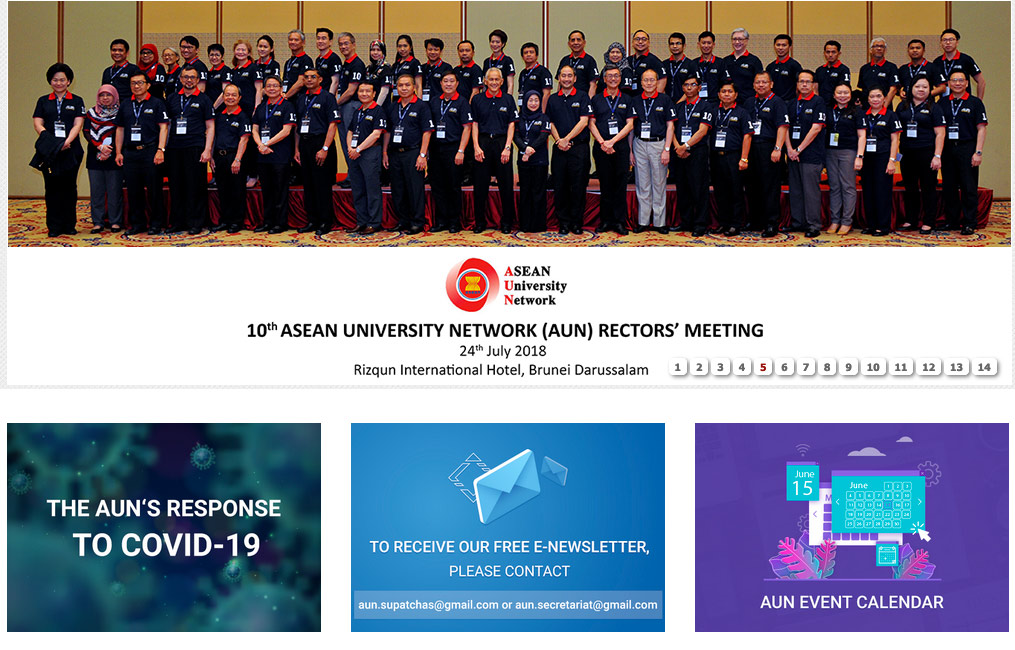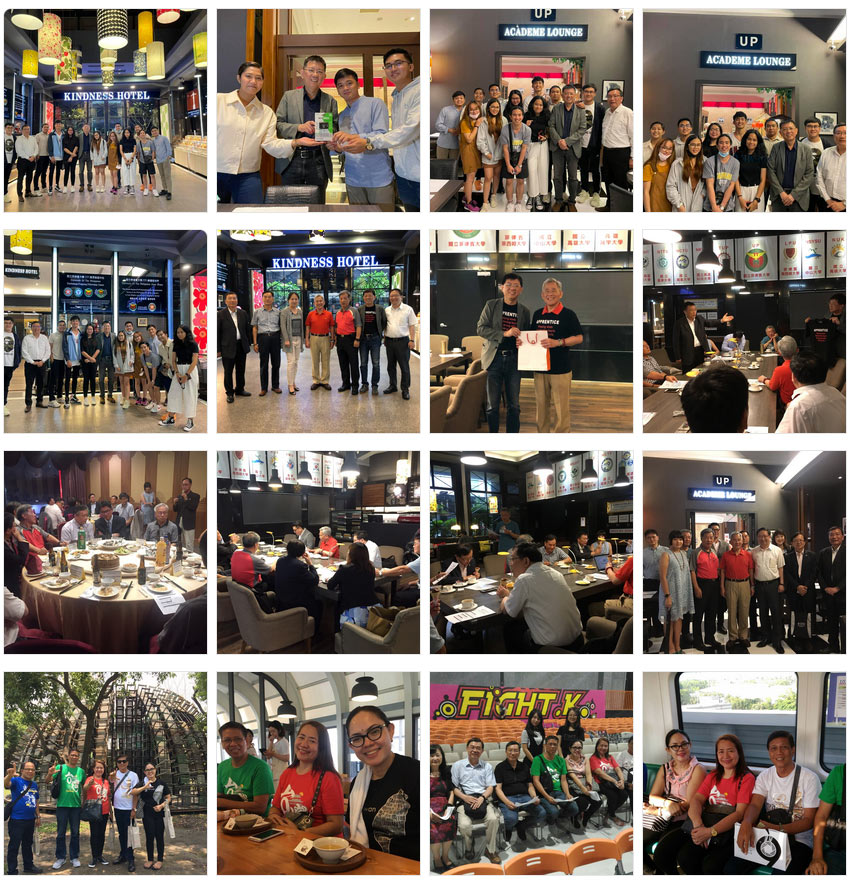
As states attempted to control the transmission of COVID-19 inside their respective territories, travel restrictions including severe lockdowns and closure of borders were imposed in the early part of 2020. Tangential to the domestic lockdowns was the immediate shift of educational institutions to deliver their classes in online and remote modes.
Since the start of the pandemic, the shift to online classes is the usual highlight of the educational reforms pursued to address the crisis; however, despite the fact that internationalization projects involved pedagogical improvement through the exchanges between teachers and faculty, talks about the impact of the pandemic to university internationalization activities are observed to be treated with less urgency and significance.
In this article, I intend to contribute to the on-going discussion on the impact of the pandemic in the pedagogy of East Asian higher educational institutions (HEIs) by offering some of my reflections about the effect of travel restrictions on the university internationalization business in the East and Southeast Asian region. By sharing my experience serving as the first liaison officer of an ambitious project of a Southern Taiwan university alliance with Philippine state universities and colleges, this piece explores the affected commercial dimensions and present cultural challenges necessary to be addressed for the continuation of higher education partnerships in the region.
Internationalization and Its Impact on Pedagogy
One significant impact of globalization in the global education system is the conduct of universities of various internationalization practices to obtain higher points in the annual results of global university rankings particularly in the Times Higher Education (THE) and Quacquarelli Symonds (QS). However, while internationalization indeed is part of the criteria measured by THE and QS World University Rankings, its percentage allotment only constitutes a small fraction of the total score: THE only allots 7.5% for the international outlook aspect (THE World University Rankings, 2019) while QS allocates 5% in scoring the international faculty/student ratio of every university (QS World University Rankings, 2020). One probable reason behind is the perceived spillover benefits brought by educational partnerships to the overall performance of universities in the other criteria of the said international rankings. These ancillary benefits are evident in the reciprocal exchanges of faculty and students as well as the opportunities for joint research projects. Indeed, these practices also contribute to the performance of a university in the other criteria aspects of the rankings, namely, teaching performance and research productivity.
Internationalization and Related Issues
Consequently, as higher educational institutions (HEIs) of East Asian states aspire to catch up with their Western counterparts such as those in China, Taiwan, Japan, South Korea, and Singapore, these universities have usually pursued educational partnerships with Western counterparts to also improve this so-called “international profile” and take advantage of the prestige brought by collaborating with an already established university from the West. Thus, such a phenomenon serves as a marketing opportunity as universities usually advertise that their graduates have greater career prospects as an outcome of the international profile and multicultural dimension of their institution (Knight & John, 2017).
Recently, due to issues brought by unfair partnership terms (Baily, 2015), the persistence of colonial “othering” (Martin & Griffiths, 2014), and tokenistic MoU/MoA practices (Fielden, 2017), universities from the non-Western world pursued a strategy of the collective organization to focus in intra-regional exchanges as evident in the presence of university alliances and consortia in Asia such as the ASEAN University Network (Chao, 2017) and Association of Pacific-Rim Universities (Tadaki & Tremewan, 2013). In relation to this collective organizing strategy, a group of Taiwanese universities also pursued a similar approach by establishing a formal organization to reach out to Southeast Asian universities with the Philippines as its pilot project. Prior to the pandemic, this Taiwanese university alliance, originating from Kaohsiung City in the southern part of Taiwan, has been steadily gaining ground particularly in terms of its presence in the Philippine academia, and solid partnerships with various multisectoral stakeholders such as the paradiplomatic offices assigned for Philippine-Taiwan relations (the Manila Economic and Cultural Office and the Taipei Economic and Cultural Office in the Philippines), Asian Development Bank, and the city government of Mandaluyong in Metro Manila.

The Case of Southern Taiwan and Philippine Higher Education Exchanges
Prior to 2016 and the COVID-19 pandemic, educational cooperation between Taiwan and the Philippines was already present via routine exchanges between faculty and students under as part of promoting exchanges for people-to-people relations. However, a lack of a unified approach was observed since individual Taiwanese universities and the Taiwan representative office in Manila pursued their own initiatives to invite and bring Filipino academics to study and conduct research in Taiwan through generous scholarship and research fellowship grants. In relation, an example of the individual Taiwanese university reach-out was the frequent visits of a group of professors from universities in Kaohsiung City to the University of the Philippines – System and some Philippine state universities and colleges.
In 2015, this initiative of Kaohsiung-based professors was finally formalized through the creation of the multi-sectoral alliance of universities, small- and medium- business enterprises and civil society organizations called the Edu-Connect Southeast Asia Association or colloquially known as “Edu-Connect”. While this organization is composed of various social organizations, the dominant members are universities located in the Southern Taiwan region who are grappling with the effects of lack of enrollees due to the ‘demographic winter’ experienced by the Taiwanese population (Hsueh, 2018). As its membership and leadership are steered by Taiwanese academics, Edu-Connect’s activities are anchored in its so-called ICUE development model which highlights the role of the knowledge economy in the development of the linkage between industries, cities, universities, and entrepreneurs (News Insider, 2020).
Since its creation, the Edu-Connect has been active in its socialization with Philippine state universities and colleges for possible partnerships with its university members. One example is the collaboration between its member, the National Kaohsiung University of Science and Technology (NKUST), with the Mandaluyong City Government as the latter constructs its city college named as the Mandaluyong College of Science and Technology (MCST). Prior to the pandemic, NKUST had been assisting the MCST as the latter conceived its program offerings and curriculum development. In addition, the Edu-Connect was active in bringing delegations composed of various Southern Taiwan professors, business owners, and civil society leaders to network with state universities in Philippine provinces. Since these delegation visits commenced in 2019, the Edu-Connect successfully established its presence and relevance with state universities in the following Philippine regions: National Capital Region (Metro Manila), Region IV-A (CALABARZON), Cordillera Autonomous Region, and Region III (Central Luzon).


In addition, aiming to institutionalize educational exchanges between Southern Taiwan and Philippine universities, the Edu-Connect signed a partnership agreement with the Manila Economic and Cultural Office for the establishment of the networking project called the “Training Network in Asia (TNA)” which aims to create an imagined region between Southern Taiwan cities and the Philippines integrated via a circular economy based on educational, business and industry exchanges. To facilitate the realization of this vision, the Edu-Connect created an infrastructure operating under a social enterprise scheme. Since the organization also includes businesses as its members, the Kindness Hotel Chain in Kaohsiung agreed to provide a networking space to accommodate Filipino delegations visiting Kaohsiung City and other Southern Taiwan cities for purposes of networking and collaboration via three venues, namely, the University Partnership Guesthouse 1 (Training Network in Asia, n.d.), the UP-Kaohsiung-Pingtung Fellowship Center (Dabu, 2020), and the PASUC Fellowship Center (Training Network in Asia, 2019a). These venues are located inside the main branch of Kindness Hotel Chain in Kaohsiung City which entitles visitors to free and discounted use of accommodation rooms and facilities to cater to their logistical networking needs. Since the rollout of the TNA platform last 2019, visits from Philippine universities and organization took place focusing on the following disciplines, namely, mechanical engineering (Training Network in Asia, 2019b), teacher education (Training Network in Asia, 2020a), and agriculture (Training Network in Asia, 2020b).
Unfortunately, these exchanges were temporarily halted due to the travel restrictions imposed by countries to curb the transmission of the virus.
Future of Southern Taiwan-Philippine Exchanges? Some Reflections
The sudden disruption of international travel caused by the pandemic also impacted the internationalization activities of Philippine universities. This reality enables us to reconsider and revisit the following issues concerning university internationalization practices.
First, the disruption of international travel reveals the “commercialized” nature of university internationalization. The extant literature refers to this phenomenon as the drive to recruit international students for purposes of higher revenues. However, this article exposes another dimension: internationalization affects the ancillary connection of multisectoral sectors ranging from aviation and local travel, hotel accommodation, and impact to tourism activities since university officials and faculty representatives need to be physically present in their target university partners through delegation visits. This leads to the discussion of the connected issue about the crucial importance of Asian cultural context.
Second, the need to become physically present tells us the centrality of the Asian cultural factor about the necessity of personal presence and interaction of parties as requirements for possible establishment of fellowship and confidence-building. Hence, university delegation usually perform several visits before formalization of partnerships such as courtesy calls, benchmarking, workshops, research colloquia, and meetings.
Third, this requirement for international travel to forge inter-university partnerships and agreements also confirms the asymmetrical relationship between the universities in the developed and developing parts of East Asia. While Edu-Connect has provided a social enterprise platform for Filipino delegations to defray the networking costs they might accrue from visiting Taiwan, Philippine state universities and colleges still grapple with financial issues due to a lack of state funding and the massive bureaucratic hurdles their officials need to address to secure financial grants allocated for internationalization purposes. In my experience as former Edu-Connect’s liaison officer, I usually encounter two issues which usually disappoint the Edu-Connect staff in Kaohsiung. One is the late confirmation of the interested clients whether they will pursue the trip or not. The other one, the worst part, is their sudden cancellation one or two days before their supposed arrival to Kaohsiung despite the fact that their itinerary, reservations, and other preparations are already prepared and paid by the Edu-Connect. These situations are rooted due to bureaucratic hurdles caused by funding issues.
Indeed, as classes and meetings are currently held online, discussions for transnational inter-university partnerships are no doubt applicable to be held through virtual means. In fact, some countries have temporarily opted for virtual student exchange programs. However, internationalization practices in East Asia still requires additional stimuli or critical juncture to further push and accelerate its departure towards personality- and connection-based foundations of doing partnerships and collaboration.
Brian U. Doce
Brian U. Doce is a faculty member of De La Salle University’s International Studies Department. He previously worked at the Manila Economic and Cultural Office and he was the first Project Liaison Officer assigned to work with Southern Taiwan-Philippine university partnerships and collaboration through the Training Network in Asia project last 2019.
References:
Baily, S. (2015). Who gets left behind? The fate of the unrepresented in the wake of US-India higher education partnerships. Policy Futures in Education Volume 13(2), 273–286.
Chao, R. Y. (2017). The Need for an ASEAN University. In G. Mihut, P. G. Altbach, & H. de Wit, Understanding Higher Education Internationalization: Insights from Global Key Publications (pp. 295–297). The Netherlands: Sense Publishers-Rotterdam.
Dabu, F. (2020, March 3). First Edu-Connect visit in 2020 highlights “bayanihan”. Retrieved from University of the Philippines: https://www.up.edu.ph/first-edu-connect-visit-in-2020-highlights-bayanihan/
Fielden, J. (2017). Global: Financial Aspects of Offshore Activities. In G. Mihut, P. G. Altbach, & H. de Wit, Understanding Higher Education Internationalization (pp. 45–47). The Netherlands: Sense Publishers-Rotterdam.
Hsueh, C.-M. (2018, August 5). Higher Education Crisis in Taiwan. Retrieved from Inside Higher Ed: https://www.insidehighered.com/blogs/world-view/higher-education-crisis-taiwan
Knight, J., & John, M. (2017). Global: The Impact of Transnational Education in Receiving Countries. In G. Mihut, P. G. Altbach, & H. de Wit, Understanding Higher Education Internationalization (pp. 57–60). The Netherlands: Sense Publishers-Rotterdam.
Martin, F., & Griffiths, H. (2014). Relating to the “Other”: transformative, intercultural learning in post-colonial contexts. Compare: A Journal of Comparative and International Education 44:6, 938–959.
News Insider. (2020, April 13). #TaiwanCanHelp. Retrieved from News Insider: News, Opinion, Lifestyle: http://newsinsider.ph/2020/04/taiwancanhelp/
QS World University Rankings. (2020, June 10). QS World University Rankings Methodology. Retrieved from QS World University Rankings: https://www.topuniversities.com/qs-world-university-rankings/methodology
Tadaki, M., & Tremewan, C. (2013). Re-imagining internationalization in higer educational: International consortia as a transformative space. Studies in Higher Education 38:3, 367–387.
THE World University Rankings. (2019, September 2). THE World University Rankings 2020: methodology. Retrieved from Times Higher Education World University Rankings: https://www.timeshighereducation.com/world-university-rankings/world-university-rankings-2020-methodology
Training Network in Asia. (2019a, October 15). KINDNESS HOTEL UNVEILS PASUC FELLOWSHIP CENTER. Retrieved from MECO-Edu-Connect Training Network in Asia: https://mecoedu-tna.weebly.com/news/kindness-hotel-unveils-pasuc-fellowship-center
Training Network in Asia. (2019b, October 15). UP College of Engineering visits Southern Taiwan universities, manufacturing firms. Retrieved from MECO-Edu-Connect Training Network in Asia: https://mecoedu-tna.weebly.com/news/edu-connect-welcomes-up-college-of-engineering-delegation-for-a-4-day-training-visit
Training Network in Asia. (2020a, January 1). ACERT, Edu-Connect sign MOU to boost professional exchange, skills training. Retrieved from MECO-Edu-Connect Training Network in Asia: https://mecoedu-tna.weebly.com/news/acert-edu-connect-signs-mou-to-boost-professional-exchange-skills-training
Training Network in Asia. (2020b, January 5). Agri Dean of Xavier University explores Possible Partnerships with Southern Taiwan HEIs. Retrieved from MECO-Edu-Connect Training Network in Asia: https://mecoedu-tna.weebly.com/news/agri-dean-of-xavier-university-explores-possible-partnerships-with-southern-taiwan-heis
Training Network in Asia. (n.d.). Frequently Asked Questions (FAQs). Retrieved from MECO-Edu-Connect Training Network in Asia: https://mecoedu-tna.weebly.com/faqs.html
Notes:
- Brian U. Doce ↩
